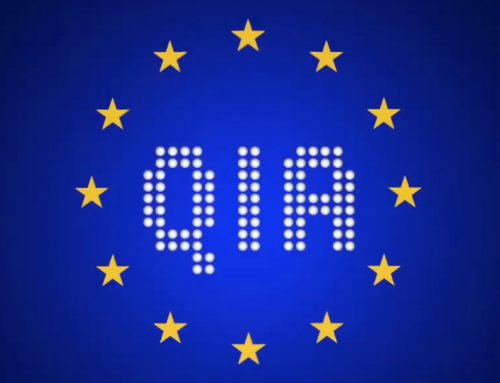Ein quantensicheres Industrienetzwerk
A quantum secure industrial network
Motivation
The digitalization of industrial plants represents a decisive further development of the economy towards the so-called Industry 4.0. This enables plants to be operated faster, more efficiently and with less maintenance. However, the associated increase in the exchange of sensitive data places ever higher demands on the security and performance of our communication networks. New technologies are needed to meet these demands.
Today’s network-capable devices encrypt transmitted data on the basis of cryptographic protocols whose security is based on the finite performance of today’s computers. This places limits on both data security and the maximum possible data rates. However, the use of quantum states in a hybrid communication network offers a new approach. Here, data is encrypted and exchanged with each other using quantum states of light. This will enable devices to transmit data securely and quickly in the future.
Goals and Methodology
The joint project 6G-Quantum Security (6G-QuaS) aims to develop a hybrid quantum-conventional wired industrial network. Here, the quantum information is to be stored continuously in the phase and amplitude of the light and not, as is common in current research, discretely in its polarization. This should result in significantly lower latency times and greater resilience against attacks while maintaining the same level of security. The project will develop the necessary protocols as well as a test track. In the project, leading research groups from the fields of quantum communication and network technology are working intensively with companies from the telecommunications sector and the “Quantum Communication Innovation Hub”.
Innovations and Prospects
The project will demonstrate the numerous applications of continuous quantum states for secure communication and performance enhancement in industrial networks. The hybrid network developed as part of the project will enable quantum technologies to be combined with existing telecommunications infrastructure. This represents a decisive step towards the commercial implementation of quantum communication technologies in Germany as a high-tech location.
After successful project completion, a demonstrator will show the advantages of a quantum network with new encryption protocols compared to previous system designs. By taking a comprehensive look at the network architecture, patent opportunities will be identified and the standardization of such networks will be promoted. The project thus makes an essential contribution to the industrial application of quantum communication and thus to the technological and digital sovereignty of Germany and Europe.






